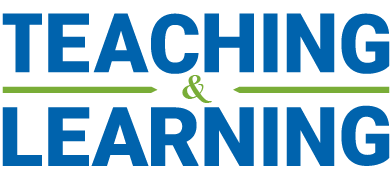Supporting Students with Schulich’s Culture of Integrity
At the start of every term, all new students at the undergraduate and graduate levels take part in a variety of orientation sessions and activities, one of which centres on introducing students to Schulich’s Culture of Integrity.
As Associate Dean Academic (ADA), I understand the challenges instructors face in the classroom related to upholding this culture. As faculty are often the first to notice or interact with a student experiencing challenges, I encourage you to familiarize yourself with the resources available to students, as well as where you can direct students to if they are in need of assistance.
Please connect with the Director of Student and Enrolment Services (Luba Pan) if you have any questions or are unsure how to proceed. Thank you for continuing to support our students in fostering a culture of integrity at Schulich.

Kevin Tasa, ADA
The Culture of Integrity at Schulich is built on four pillars:

Pillar #1
A Culture of
Academic Honesty

Pillar #2
A Culture of Inclusion

Pillar #3
A Culture of Respect

Pillar #4
A Culture of Wellness
Four Pillars of Culture of Integrity
What is it?
This pillar focuses on the importance of upholding academic honesty within the University. York’s Senate Policy on Academic Honesty is an affirmation and clarification for members of the University of the general obligation to maintain the highest standards of academic honesty.
To convey the importance of this policy, undergraduate and graduate students are introduced to the policy during academic orientation. The academic orientation session covers academic honesty concepts and introduces students to applicable learning resources available at York and Schulich. Each student is also required to complete a set of online mandatory academic honesty learning modules and to achieve a 70% pass grade on a quiz of understanding. By completing these modules, students will be able to recognize the most common academic honesty infractions, assess their comprehension of each concept, and address areas of improvement. Instructors are welcome to explore a copy of these student modules for their own reference.
Also during academic orientation, students are introduced to additional resources, such as English Language Peer Support services that provide students with one-on-one English language writing assistance on assignments, cases, and papers. The Graduate and Undergraduate Handbooks offer students a quick guide on what the academic honesty policy is and who to connect to for clarifications. In addition, York U library offers various workshops designed specifically for Schulich students (i.e.: Undergrad APA Citation, Grad APA Citation, Master’s Level Research Skills, 601 Research Skills Workshop).
How can you help?
- Familiarize yourself with the Academic Honesty Policy to ensure awareness of the content as well as procedures for dealing with suspected infractions. This policy is included in the student handbook and linked to in every course outline.
- Provide clear expectations to students before each assignment that outline how/whether students can work together and what materials they may reference.
- Design your assessments in such a way as to reduce academic honesty infractions.
- Regularly remind students of the resources noted above, available to them to aid in successfully upholding academic integrity at York U.
Who to connect to?
If there is a suspected breach of the academic honesty policy in your course, Student and Enrolment Services will coordinate the investigation. Forward all available relevant materials (i.e., copy of the exam sheet, copy of the blank exam version, answer key, course outline, etc.) to academichonesty@schulich.yorku.ca. The Student and Academic Services Coordinator, in coordination with the Office of Associate Dean, Academic, will conduct an exploratory meeting with the student to discuss the alleged breach. Grades will be adjusted based on the outcome of the exploratory meeting. Student and Enrolment Services will notify the area and the instructor of the outcomes and if any adjustments need to be made.
What is it?
York’s Centre for Human Rights, Equity and Inclusion (CHREI) promotes and builds a respectful, equitable, diverse, and inclusive (REDI) community within the University. It strives to be a leader in providing accessible, impartial, non-adversarial, and confidential programs and services that uphold human rights, facilitate equitable access to opportunities, and champion diversity and inclusion. The Centre offers current students, faculty, and staff:
- resources on York’s inclusion and human rights-related policies, procedures, and services
- assistance with questions or concerns related to human rights matters
- training and events on human rights, equity, and inclusion
- funding for REDI initiatives on campus
- opportunities to support a REDI York environment.
How can you help?
Learn how to identify and prevent discriminatory behaviour through one of the following online training courses:
- Attend CHREI’s REDI Workshop Series, and complete their REDI Online Tutorial, available to York staff, faculty, and students. These training materials teach audiences how to better identify and prevent harassment and discrimination based on provincial human rights legislation and the University’s human rights-related policies.
- LinkedIn Learning’s online training course titled Confronting Bias: Interacting with Others Across Differences. Learn how to create inclusive environments where everyone can thrive.
- LinkedIn Learning’s online training course titled The Importance of Inclusion. Note, a York email (not Schulich) is required for login and access. This course introduces the key concepts in the inclusion space, from the basics of diversity and inclusion, to the more complex ideas of covering and microaggressions. You’ll learn how to be an ally in any situation, whether in day-to-day office life, in meetings, or at social events. You will also learn about the resources you need to improve your hiring process and to make your workplace more inclusive.
Who to connect to?
Intentional and unintentional misconduct may happen. If you become aware of any misconduct, student(s) can be referred to the Director of Student and Enrolment Services (Luba Pan) for investigation and coordination of conflict resolution. Options for conflict resolution may include:
- Informal Resolution: Includes information gathering and clarification, or early resolution (i.e., apology).
- Mediation or Alternative Dispute Resolution: Face-to-face or other forms of mediation and dispute resolution such as facilitated meetings/discussions, etc.
- Formal Complaint and Investigation: Assisting complainant with the formal written complaint and informing of the process. Liaising with formal channels of escalation (CHREI, OSCR, and/or other applicable parties).
What is it?
Students are introduced to York University’s Code of Student Rights & Responsibilities, and the central Office of Student Community Relations (OSCR), who handle the investigation of violations of the Code. York University is a place of research, teaching, and learning where people value civility, diversity, equity, honesty, and respect in their direct and indirect interactions with one another. Freedom of expression, freedom of association, freedom to study and to learn, freedom to engage in research, and the freedom to write and to publish are all recognized as central to the mission of the institution. It is acknowledged that these values can only be meaningful, and these freedoms fully realized, in an atmosphere of safety and security. All York students have rights and responsibilities as outlined in the Student Rights & Responsibilities document, and they are expected to uphold the identified values for the benefit of the entire York community.
Before course enrolment, every student must acknowledge their commitment to the Code of Student Rights & Responsibilities. The below message appears in the Registration and Enrolment Module.
“I acknowledge that I have an obligation to abide by York University’s non-academic Code of Student Rights & Responsibilities and I understand that it is my responsibility to review the Code of Student Rights & Responsibilities found at http://www.yorku.ca/oscr/studentconduct.html.”
How can you help?
As networking and group work are essential learning components of Schulich programs.
- Familiarize yourself with York University’s Code of Student Rights & Responsibilities.
- Review the list of resources provided on the Centre for Human Rights, Equity and Inclusion (CHREI) website.
- Conduct lectures and facilitate group discussions in a mutually respectful way to help reinforce the core values of the Schulich community.
- Be an ally to foster a community where mutual respect is foregrounded in any relationship, both personal and professional.
Who to connect to?
Intentional and unintentional misconduct may happen. If you become aware of any misconduct, student(s) can be referred to the Director of Student and Enrolment Services (Luba Pan) for investigation and coordination of conflict resolution. Options for conflict resolution may include:
- Informal Resolution: Includes information gathering and clarification, or early resolution (i.e. apology).
- Mediation or Alternative Dispute Resolution: Face to face or other forms of mediation and dispute resolution such as facilitated meetings/discussions, etc.
- Formal Complaint and Investigation: Assisting complainant with the formal written complaint and informing of the process. Liaising with formal channels of escalation (CHREI, OSCR, and/or other applicable parties).
What is it?
Schulich recognizes the importance of focusing on mental health and wellbeing and encourages all students in need of additional support to use available resources at York U. The Student Counselling, Health & Well-being (SCHW) office offers a variety of services to support students in realizing and fulfilling their potential. As stated on their website, “All counsellors at Student Counselling, Health & Well-being are registered clinicians who have experience working with a diverse student population. SCHW recognizes that students may desire to meet with a counsellor with whom they share the same or similar identity/ background. Students are welcome to express their preference to meet with counsellors of a particular identity (e.g. male, female, Black-identifying, LGBTQ2S+-identifying, etc.).”
Further, all Schulich students can book a wellness check-in appointment (Graduate and Undergraduate booking) with Schulich’s Manager, Student Success to privately explore support options.
How can you help?
The mental health and wellbeing of a student may be affected by various medical, social, and economic factors.
- Familiarize yourself with SCHW’s page dedicated to identifying students in distress to promptly identify and respond to students’ situations.
- Respect students’ privacy, remain bias and judgment-free, and refrain from using certain labels such as “mental illness”.
- Use more neutral words, such as “wellbeing” and “wellness”, especially among international students who may hold different social norms about mental health.
- Review Student Services’ own resource for students as a guide on how to navigate Mental Health and Wellness at Schulich.
Who to connect to?
Upon discovery of a student who may need additional support, contact the Director of Student and Enrolment Services (Luba Pan). Each situation is unique and may require a different approach.


